There’s Nothing Progressive About Kamala Harris’ Record as a Prosecutor
The Democratic hopeful claims to support Medicare-for-all and the Green New Deal, but can she be trusted if elected?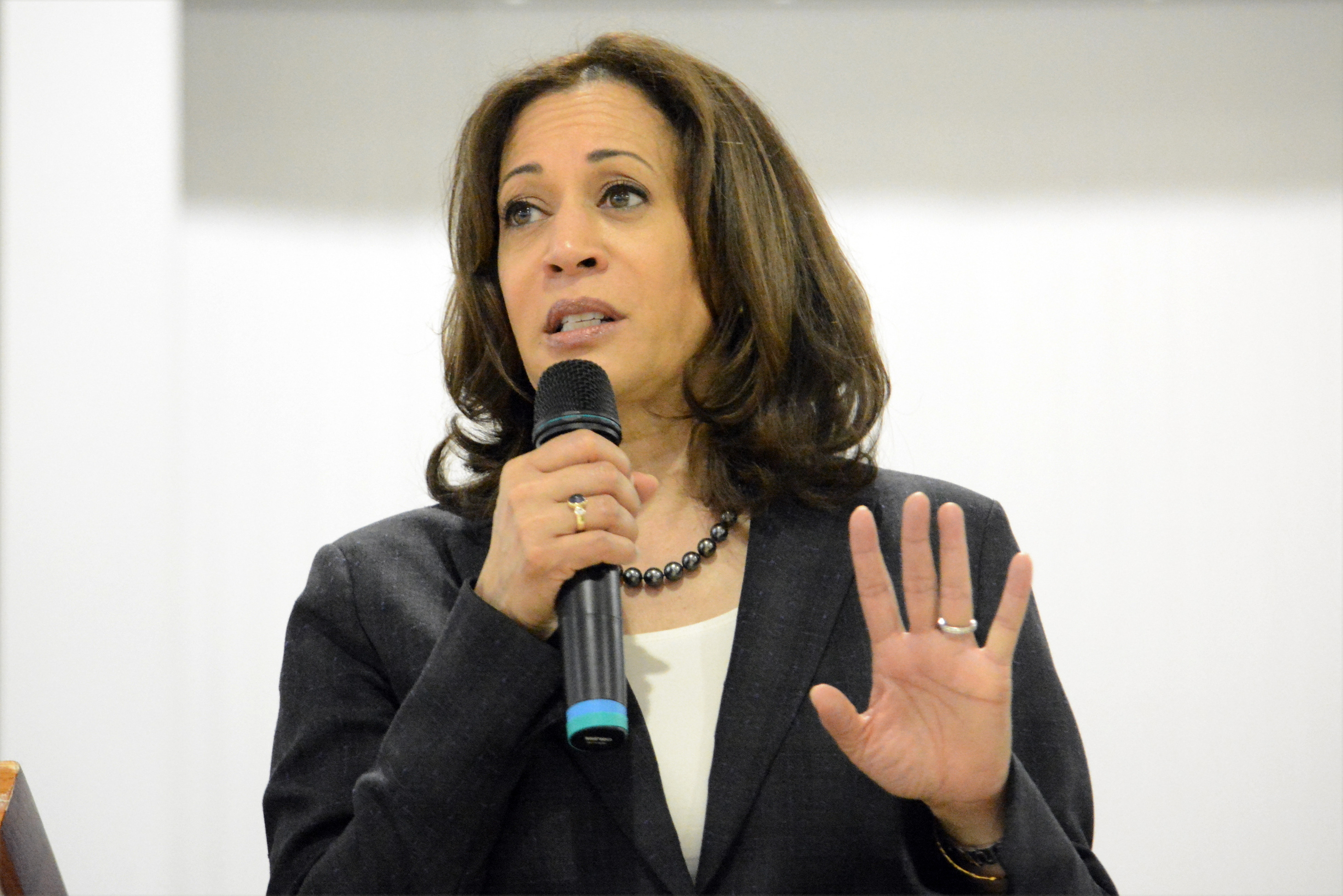 Sen. Kamala Harris, D-Calif. (Meg Kinnard / AP)
Sen. Kamala Harris, D-Calif. (Meg Kinnard / AP)
What follows is a conversation between journalist Branko Marcetic and Thomas Hedges of the Real News Network. Read a transcript of their conversation below or watch the video at the bottom of the post.
KAMALA HARRIS: I stand before you today to announce my candidacy.
THOMAS HEDGES: On January 21, Kamala Harris announced she was running for president in 2020. Now, more than a month later, she’s emerged as one of the Democratic party’s frontrunners.
However, she’s currently facing strong criticism, especially for her career as a tough-on-crime prosecutor in California. But between her Senate win in 2016 and her announcement to seek the presidency in January, she started to support measures in line with the progressive agenda figures like Bernie Sanders and Alexandra Ocasio-Cortez have advanced. From tackling bail reform, to supporting the Green New Deal, to even backing Medicare for All, Harris is taking positions that past establishment candidates like Hillary Clinton and Barack Obama wouldn’t have taken. So where does she really stand?
BRANKO MARCETIC: My sense of her has always been that she was someone who suddenly had an eye on higher office, and the role that she wanted to take to that was to be a tough prosecutor.
THOMAS HEDGES: Branko Marcetic, a contributor to Jacobin magazine, who wrote one of the most extensive profiles of Kamala Harris back in 2017, says that Harris’s recent progressive rhetoric is a form of compensation for a lifetime of enacting tough-on-crime policies Democratic voters no longer think are fair.
BRANKO MARCETIC: And so basically the piece I wrote was looking at how much current rhetoric really aligns with her past policies, the answer being not all that much.
Having gotten their political education in the ’90s and 2000s, which is the kind of high point of Democratic centrism and the third way, her politics are very much of that era, where the way you defeat the right is by basically trying to triangulate and take some of their positions so you can peel off right-wing voters.
THOMAS HEDGES: Marcetic argues that Harris’s whole career has been a balancing act between garnering popular support and gaining the trust of the establishment, and the first stark example of that was in 2004, when she had just been elected as district attorney of San Francisco, and had refused to seek the death penalty for a man who had killed a police officer. It was a stance for which she was heavily criticized, including by U.S. Senator and former San Francisco Mayor Dianne Feinstein. In later years, however, it was something she really didn’t speak about or continue to challenge, even though she ran on an anti-death penalty platform. In fact, 10 years later, she reversed her position, and even appealed a federal judge’s conclusion that the death penalty was unconstitutional.
Her explanation was that while she was personally opposed to capital punishment, her job as a prosecutor was to enforce the will of the voters, the majority of whom had voted for the death penalty. That explanation might have been plausible, if it weren’t for the fact that in 2008 California faced the same exact situation with regards to banning gay marriage.
SPEAKER: And a battle that’s too close to call is over the future of same sex marriage.
THOMAS HEDGES: As with the death penalty, voters had approved a ban on gay marriage in the state. And again, as with the death penalty, a federal judge later ruled that referendum to be unconstitutional.
KAMALA HARRIS: I think that Prop 8 is, as the court has declared, unconstitutional.
THOMAS HEDGES: However, Harris chose not to defend the referendum on banning gay marriage.
KAMALA HARRIS: Think about it conceptually, it’s just wrong.
THOMAS HEDGES: Proving that she was, indeed, selective on which issues she was willing to fight for.
BRANKO MARCETIC: Which I think was a very obvious kind of play, I think, for her later Senate run, was her showing, feeding something to the Democratic base, which at that time was I think a lot more occupied with something like Proposition 8 and gay rights, as they rightly should have been. But I think there was less talk about criminal justice reform.
The fact that she refused to seek out the death penalty when she was under a lot of political pressure when she first came in as DA, I think, is is definitely a good thing. But the fact that she continued to defend it after, I think, shows the limits of how far someone like her can really–especially if they want to get ahead politically–how far they can really buck the system. I suspect, I should say, that perhaps that could have been a sort of a learning experience for her, where she got this tremendous amount of criticism for refusing to put this man to death, and so she then later had to sort of prove that she, you know, she’s not going to be someone who follows through on her anti-death penalty principles, and how she’s saying she’s going to hold to what the law is.
THOMAS HEDGES: After the death penalty controversy in 2004, Kamala Harris becomes much more conservative. In the following years she would help pass legislation that reported arrested, undocumented juveniles to Immigration and Customs Enforcement.
SPEAKER: It’s been called the toughest law in America.
THOMAS HEDGES: She would not only defend the three strikes law, which is a highly punitive law that puts someone behind bars for life if he or she simply commits both one violent felony and has two previous convictions, but Harris would also make her support for the law a centerpiece of her 2009 campaign for re-election.
BRANKO MARCETIC: She ran to the right of her Republican opponent on that, who actually wanted to get rid of the three strikes law.
THOMAS HEDGES: She would fight to protect the practice of civil asset forfeiture, and more specifically the ability for police to seize profits before charges were even filed. She also famously fought to keep Daniel Larson, a man who was wrongfully convicted of burglary in 1999, in jail even after a judge reversed his conviction due to a lack of evidence.
BRANKO MARCETIC: The Daniel Larson case is basically someone who was arrested and convicted for saying that he didn’t do–mostly his offence was he had a weapon. He was on probation, and he had a knife on him. And the police found that. He had incompetent, kind of, legal representation. He was in jail for a number of years, and he ended up being freed by a judge who decided that what had happened to him was manifestly unjust. And Harris appealed that.
THOMAS HEDGES: There was also the case of Kevin Cooper, a black man who was imprisoned in 1983 for a horrific mass murder incident in California.
SPEAKER: New DNA evidence could impact the future of an inmate who has been on death row for more than 35 years.
THOMAS HEDGES: After his trial and sentencing, however, new evidence came out suggesting the police had maybe framed Cooper. But despite Cooper’s petitions for a revisitation of the case, Kamala Harris’s office objected. Cooper is still in prison today, but with renewed pressure, California Governor Gavin Newsom has finally ordered new DNA tests.
SPEAKER: Newsom wants current DNA tests done on hair, blood, and fingernail scrapings.
THOMAS HEDGES: It was only after an explosive New York Times investigative report that Harris publicly supported the new DNA testing in a Facebook post, but failing to acknowledge that she’d been a barrier to the testing in the past.
BRANKO MARCETIC: There’s also, I think, something that’s kind of come onto the fore a little more in recent months is her policy of prosecuting truant–well, the parents of truant kids–as a sort of back-to-school encouragement policy. Except, you know, instead of using a carrot, it’s using a very punitive stick.
KAMALA HARRIS: A friend of mine actually called me and he said “Kamala, my wife got the letter. She freaked out. She brought all the kids into the living room, held up the letter. Said ‘If you don’t go to school, Kamala’s going to put you and me in jail.’”
BRANKO MARCETIC: Basically, she wanted to threaten parents with jail if their kids didn’t turn up to school, which obviously is a policy that is going to disproportionately affect minority communities; the same minority communities that she is, I think, trying to now appeal to and present itself as something of a champion for.
THOMAS HEDGES: Even as late as 2013, Harris continued not only to defend her tough-on-crime philosophy, but make fun of the emergent movement against the crisis of mass incarceration.
KAMALA HARRIS: We all have these posters in our closet that is attached to a stick.
BRANKO MARCETIC: She on stage, and she kind of mocks this kind of, this activist impulse, less prisons more schools.
KAMALA HARRIS: And we run around with these signs. Build more schools, less jails. Build more schools, less jails. And we walk around everywhere. Build more schools–we protest. Build more schools, less jails.
BRANKO MARCETIC: She does it in this very, kind of, like, very mocking way, where the idea is that these people, these activists, are not serious.
KAMALA HARRIS: There’s a fundamental problem with that approach, in my opinion. And it’s this. I agree with that, conceptually. But you have not addressed the reason I have three padlocks on my front door.
BRANKO MARCETIC: You know, she talks about how we all we all have these placards in our closets. We all used to be activists. But if you really want to be in the real world, you want to be a serious person, you have to forget that kind of soft-headed nonsense, and you know, the way to go is by really prosecuting people.
KAMALA HARRIS: So part of the discussion about reform of criminal justice policy has to be an acknowledgement that crime does occur.
BRANKO MARCETIC: I mean, that’s not really smart on crime. And I would say that that’s not even a realistic thing. That’s a fantasy, the idea that you can just keep locking people up and solve anything. It’s a fantasy that is driven by political considerations, because that–for her, for someone of her generation, that was seen as the ticket to political power, was to show that you were tough.
THOMAS HEDGES: Similarly, she mocked her Republican opponent for supporting the legalization of marijuana a year later in 2014, during the race for attorney general of California.
RON GOLD: My position is it needs to be legalized.
SPEAKER: Ron Gold, the Republican candidate for attorney general, wants to tax and regulate the use of marijuana for recreational purposes.
RON GOLD: Colorado is already beginning to prove to everybody that there is sufficient taxable base.
SPEAKER: We asked California’s current top cop Kamala Harris for her position on this controversial issue.
SPEAKER: But your opponent Ron Gold has said that he is for the legalization of marijuana recreationally. Your thoughts on that?
KAMALA HARRIS: I think that he is entitled to his opinion.
BRANKO MARCETIC: She laughed at the idea. That was her reaction. She laughed, because it was such a ridiculous idea. Now she’s asked about smoking pot on the Breakfast Club.
KAMALA HARRIS: There are a lot of reasons why we need to legalize.
SPEAKER: Have you ever smoked?
KAMALA HARRIS: I have.
SPEAKER: OK.
KAMALA HARRIS: And I inhaled. I did inhale. Again, and I inhale.
BRANKO MARCETIC: To me it’s the height of hypocrisy to now be bragging about using drugs illegally while refusing to even countenance the idea of legalizing that drug. So many people have been having the book thrown at them by the criminal justice system.
THOMAS HEDGES: The contradictions in Harris’s record touch other issues as well. In 2011, for example, she was lauded when she reached a $25 billion settlement with too-big-to-fail banks for their roles in the 2008 subprime mortgage crisis. But she was also heavily criticized for not going as far as many say she should have. California was the epicenter of the crisis, and yet Harris made no effort to put even a single executive behind bars. And in 2017, the Intercept divulged a 2013 memo prosecutors from her office had sent her, saying that it had “uncovered evidence suggestive of widespread misconduct” at OneWest Bank, where current Treasury Secretary Steve Menuchin had been the CEO.
BRANKO MARCETIC: Harris’s offices had actually advised to go after Steve Mnuchin’s bank, OneWest, that had engaged in really flabbergasting criminality. Basically, really, just stealing people’s houses, in many cases. And she did not do that. Who knows why? As The Intercept pointed out, Mnuchin, OneWest, had donated to her. Whether that’s why, or whether it’s more to do with a sort of caution or timidity to take on, you know, moneyed interests, powerful moneyed interests, it’s hard to say, at this point.
THOMAS HEDGES: On environmental issues she’s taken a similar approach. She has a strong track record when it comes to holding polluters accountable. And as DA in San Francisco, she created a team whose sole purpose was pursuing cases of illegal dumping and air pollution. But she’s been reluctant to speak out and support the Green New Deal, supporting the idea of it but not explicitly endorsing it.
BRANKO MARCETIC: I think we sort of see a similarity in that with her recent comments on Medicare for All, where she had first said that yes, she was in favor of abolishing private insurance, and then she got a wave of criticism from the right and the Democratic Party. And she immediately, very quickly, backtracked on that. She said afterwards, you know, Medicare for All, single payer, can mean a lot of things. It could mean a public option; it could mean this, it could mean that. I mean–which is not true. A public option, single payer, are very different things. Basically it’s, she’s, I think, now sort of walking back a little bit from the Medicare for All vision that’s outlined in the Sanders bill, and sort of saying, well, you know, it could be other things, too. There could be a lot of ways that we get to single payer. Which is not strictly true.
THOMAS HEDGES: On foreign policy, Harris tends to be silent. But when she does speak up, she’s nakedly hawkish. She’s a strong apologist for Israel, and spoke at AIPAC’s conference last year, going so far as to compare the civil rights movement in Selma to Israel’s struggle for nationhood today.
BRANKO MARCETIC: It certainly seems like the donor base, the large donor base that was supporting Clinton has migrated towards Kamala Harris. She did a fundraiser in Hollywood not too long ago where a bunch of Clinton donors, you know, these sort of entertainment moguls showed up to be there. 2017, she was reported to be going to fundraisers with former Clinton donors in Martha’s Vineyard, I believe. You can definitely make the case that she’s sort of, Harris is kind of the torchbearer passed on from Hillary Clinton. Many of the same donors and establishment opinion is behind her.
THOMAS HEDGES: Kamala Harris is part of a camp of politicians in Washington who have built their credentials on the increasingly outdated idea that Democratic voters want tough-on-crime liberals in office. But it’s clear Harris is struggling to switch gears and rework her image to appeal to the more progressive wing of the party that supported Bernie Sanders in the last elections. A recent poll even suggests that among black primary voters, Harris trails Sanders 2:1. In the end, Harris, along with other establishment Democrats like Cory Booker and Joe Biden, seem to be frantically trying to salvage their political careers.
BRANKO MARCETIC: Politicians like Harris, Biden, Booker, they must feel like the rug has been pulled out from under them. Harris, like all these other politicians, now are scrambling to to make up for their past records. But it’s very hard to run away from your history; especially someone like Harris, or someone like Biden. They have decades worth of things they’ve done that now look very bad when inspected.
Your support matters…
Independent journalism is under threat and overshadowed by heavily funded mainstream media.
You can help level the playing field. Become a member.
Your tax-deductible contribution keeps us digging beneath the headlines to give you thought-provoking, investigative reporting and analysis that unearths what's really happening- without compromise.
Give today to support our courageous, independent journalists.
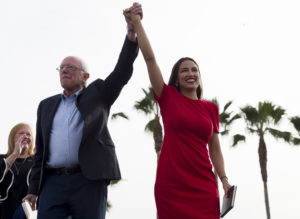


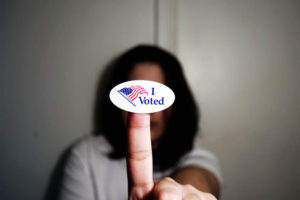
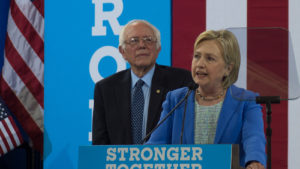
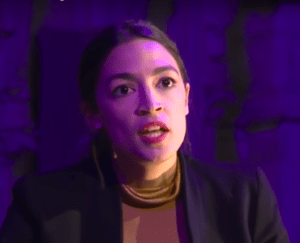
You need to be a supporter to comment.
There are currently no responses to this article.
Be the first to respond.